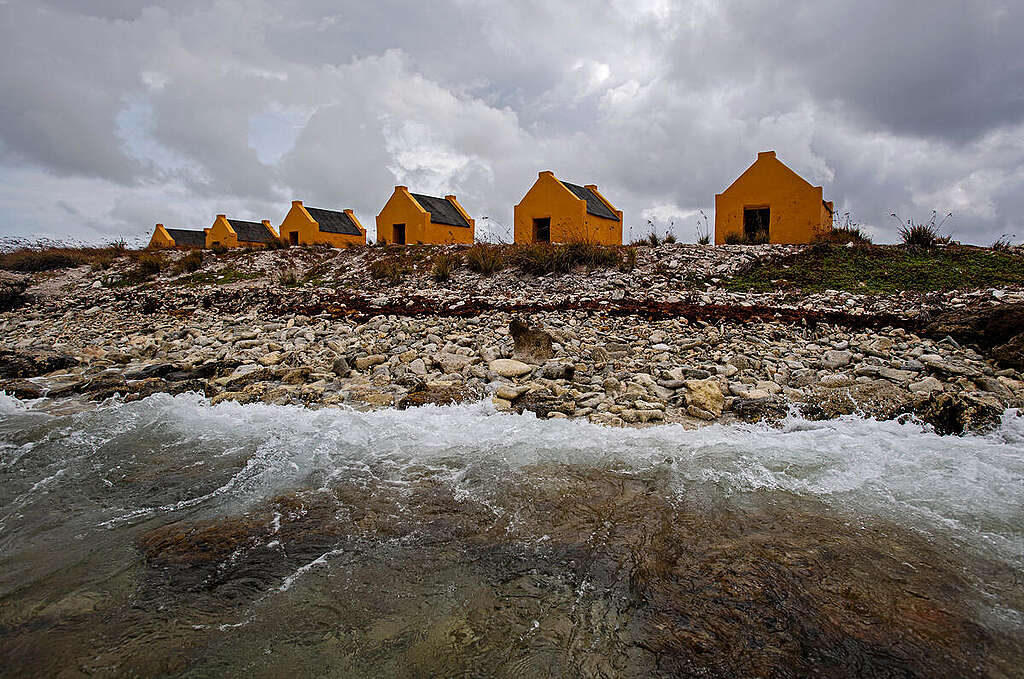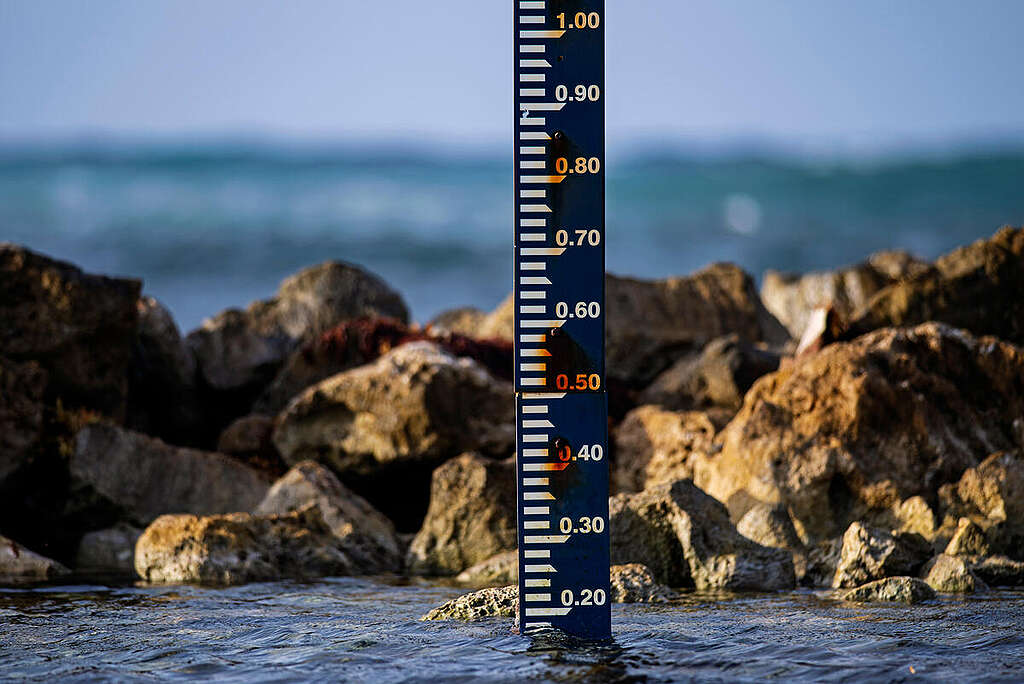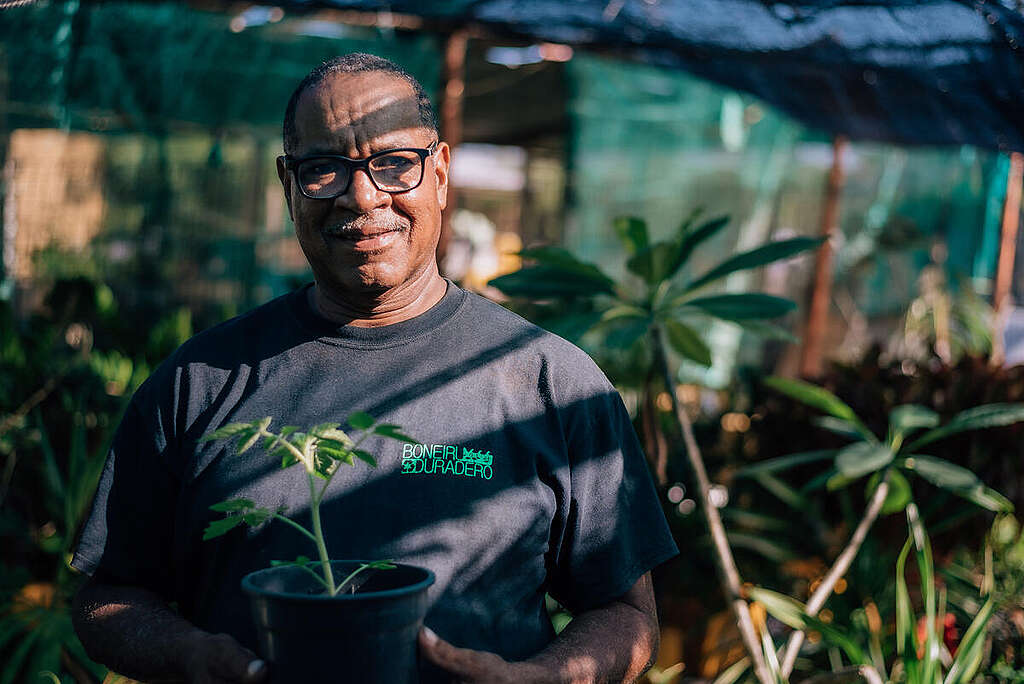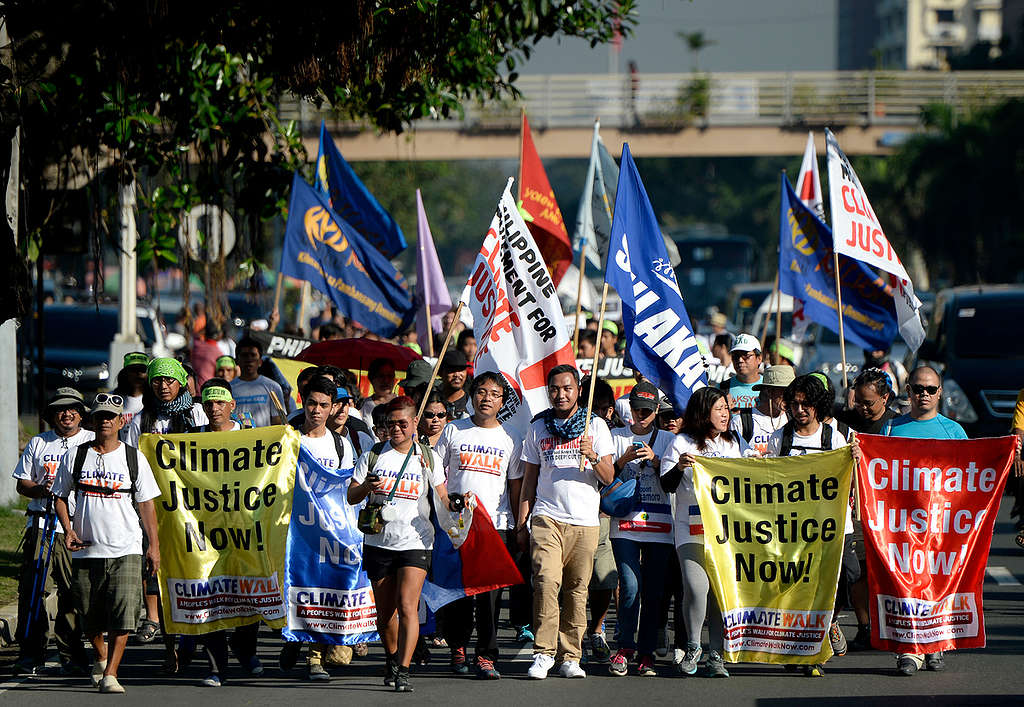This year, communities, climate activists, and organisations have celebrated victory after victory, from driving change locally to being heard in international courts. A recent decision from the world’s highest ocean court, in a case brought by small island states threatened by rising sea levels caused by global heating, marks a major breakthrough. It paves the way for addressing climate change through existing international frameworks and reinforces States’ responsibilities to act on climate change.
In its first climate-related judgement, the International Tribunal for the Law of the Sea (ITLOS) found that greenhouse gases absorbed by oceans constitute marine pollution, and governments must “take all necessary measures to prevent, reduce and control marine pollution” related to climate change. It added that countries must go beyond the requirements of the landmark 2015 Paris climate agreement to protect the marine environment and the states that depend on it.
The ruling is a huge victory. It follows the landmark victory of the KlimaSeniorinnen at the European Court of Human Rights, and the historical climate hearings at the Inter-American Court of Human Rights this year. It also sets the stage for the upcoming hearings that will take place at the International Court of Justice (ICJ). These international courts and tribunals will clarify the obligations of States to act on climate change under international law for decades to come.
We are legal counsels for Greenpeace International on these pivotal climate justice and liability cases. Join us on a deeper dive to understand what this ocean court victory could mean for the movement.

What is ITLOS?
Put simply, ITLOS is an independent international court that addresses issues relating to the ocean, as established by the United Nations Convention on the Law of the Sea (UNCLOS). ITLOS is responsible for adjudicating disputes related to the interpretation and application of the ocean convention. It has jurisdiction over a wide range of ocean issues, including maritime boundaries, environmental protection, navigation rights, and fisheries management. It can also provide advisory opinions.
What is an advisory opinion?
An advisory opinion is a legal statement issued by ITLOS in response to questions posed by international organisations or UN agencies. In short, it provides legal guidance to international organisations such as the UN on how international laws should be interpreted.
An instrument of accountability
The ITLOS Advisory Opinion highlights how crucial it is to prevent, reduce and control greenhouse gas emissions to safeguard our oceans and all the invaluable benefits they offer to the communities who depend on them. The impacts of this decision extend well beyond the confines of the legal system, affecting the lives of billions of people who depend on the ocean for livelihoods, sustenance, and culture.
Oceans are life
Vinzealhar Nen, community worker of Port Moresby in Papua New Guinea, describes the impact of ocean protection on spiritual connection through mana, a Polynesian and Melanesian term referring to the spiritual power that permeates the universe.
“Mana flows like the currents of the Pacific, connecting us all and reminding us of our duty to care for the ocean and all its creatures. For us Pasifika people this advisory opinion goes beyond states’ responsibilities. Our ocean is important because it supports our livelihoods, both primary needs and secondary needs for people living in coastal communities. The ocean apart from being our provider has also been a source of mana for many generations and for us protecting our oceans means to protect our cultures – an essential part of our identity.”
The ocean is Earth’s life support system, absorbing carbon dioxide, regulating temperatures, and nurturing biodiversity. It is a way of life for island nations and coastal communities. Rising sea levels, ocean acidification, and extreme weather events threaten their very existence, highlighting the urgent need for action on climate change.

ITLOS groundbreaking victory
ITLOS found that in addition to fulfilling their duties under the Paris Agreement, States also need to fulfil stringent due diligence obligations to reduce GHG emissions to no more than 1.5°C to protect and preserve the marine environment. It also highlighted that all marine life is impacted by climate change and ocean acidification, necessitating the preservation of both marine life and living resources. According to the Tribunal, these obligations are intended to mitigate the injustices experienced by developing nations, especially small island nations, which are particularly vulnerable to the impacts of climate change.
“We know that sea levels are rising. And because we are surrounded by the sea, the lower parts are getting into trouble first, because the ground is getting saltier, making it harder to preserve nature,” says Onnie Emerenciana, one of the courageous plaintiffs demanding climate justice over climate impacts on the Caribbean island of Bonaire.

Small island states have contributed the least to the climate crisis but are facing its worst effects. Richer and more polluting states must take responsibility for their historical and ongoing contribution to climate change. For Onnie, Vinzealhar, and other coastal and island communities, climate protection is ocean protection. The ocean court opinion not only informs future legal and diplomatic efforts, it also strengthens community efforts in demanding concerted global action to hold major polluters to account.

It’s time for all of us to assert our rights, demand climate justice, and a dignified way of life.
Louise Fournier & Maria Alejandra Serra Barney are legal counsels for Climate Justice and Liability at Greenpeace International
Safina Okumu is Communications Lead for Climate Justice and Liability at Greenpeace International
